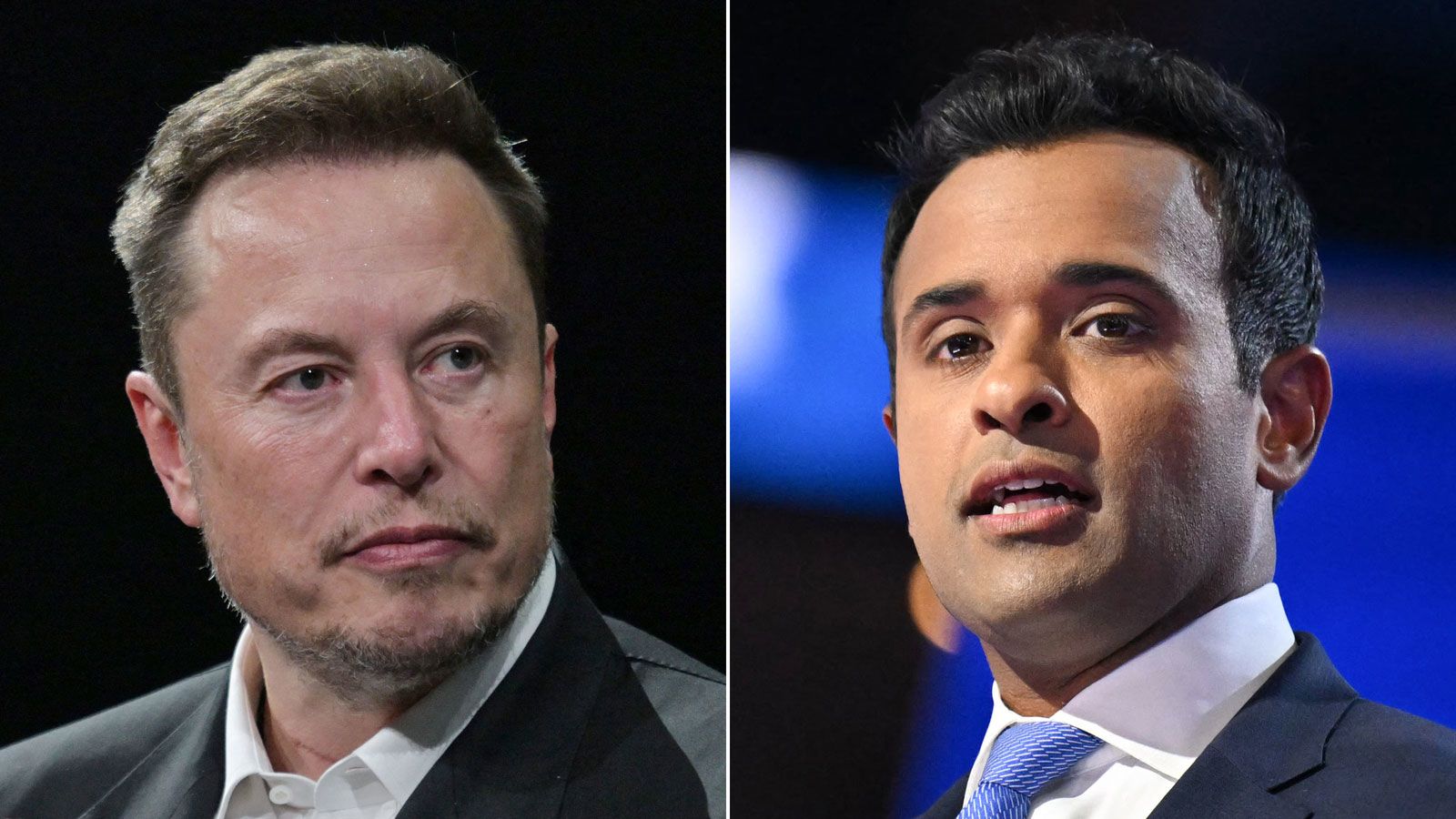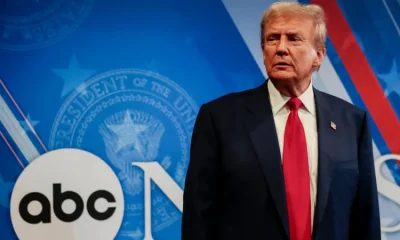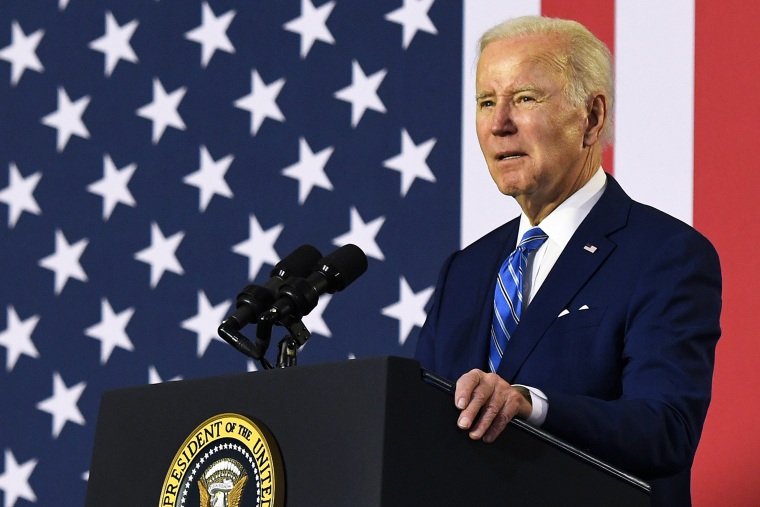Afghanistan
DOGE: Trump Gives Elon Musk, Ramaswamy Appointments Few Days After Victory

President-elect Donald Trump has announced the formation of a new “Department of Government Efficiency” (DOGE) to tackle federal spending and streamline government operations/
In line with his campaign promises, Trump appointed tech billionaire Elon Musk and conservative activist Vivek Ramaswamy to lead this new department. The appointment grants both figures substantial oversight and influence to reduce waste across federal agencies.
Focus on Reducing Bureaucracy and Regulations
Trump’s announcement, shared via social media, underscored his intention to dismantle bureaucratic barriers and cut back on regulatory excess, framing DOGE as a game-changing move in government reform.
The name “DOGE” itself, a playful nod to an internet meme and a cryptocurrency associated with Musk, hints at the unconventional approach Musk and Ramaswamy bring to this mission.
DOGE is intended to operate independently from the traditional government structure, offering direct strategic advice to the White House on agency reforms without the need for congressional or Senate approval. Trump even likened the department’s goals to the Manhattan Project, setting an ambitious target for results by July 4, 2026.
Musk’s Bold Vision for Aggressive Spending Cuts
In his first remarks on the appointment, Musk signaled that DOGE’s mission would “send shockwaves through the system.”

Elon Musk and Ramaswamy
He has voiced intentions to aggressively cut federal spending, suggesting a target reduction of $2 trillion, which surpasses the current discretionary budget of $1.7 trillion.
While he has yet to provide specific details, Musk has hinted at potential cuts to agencies like the Department of Education and public broadcasters like NPR. On his social media platform X, Musk declared, “Threat to democracy? Nope, threat to BUREAUCRACY!!!” indicating his resolve to streamline government functions and remove redundant positions.
Ramaswamy’s Call for Federal Workforce Reduction
Vivek Ramaswamy, who previously competed against Trump in the Republican primaries, echoed similar sentiments on reducing bureaucracy.
He advocates for large-scale layoffs across federal agencies as a way to decrease staffing without direct interference in civil service protections.
Ramaswamy has suggested that a requirement for federal employees to work standard hours—Monday through Friday, 8 a.m. to 6 p.m.—would lead to a natural “25% thinning of the bureaucracy.”
On the campaign trail, he voiced support for eliminating agencies such as the FBI, the Bureau of Alcohol, Tobacco, Firearms and Explosives, the Nuclear Regulatory Commission, and certain services within the Department of Agriculture and the Department of Education.
Independence from Senate Confirmation and Potential Policy Tools
DOGE’s setup allows Musk and Ramaswamy to retain their private-sector roles and bypass the need for Senate confirmation, thereby preserving their influence in both the business and government spheres.
Trump has also indicated he may seek to restore “presidential reorganization authority,” last used in the Reagan era, allowing him to consolidate or eliminate agencies within the executive branch.
Additionally, he may reintroduce his “Schedule F” executive order, initially signed in October 2020 but later repealed by President Biden, which would reclassify thousands of federal civil service positions as at-will roles, allowing more flexibility in hiring and firing.
Support from the Government Accountability Office
Gene L. Dodaro, the U.S. Comptroller General and head of the Government Accountability Office (GAO), stated that the GAO would support DOGE’s mission.
The GAO has historically collaborated with presidential or congressional commissions focused on federal efficiency, and Dodaro reaffirmed the agency’s readiness to provide data and analysis as DOGE examines government expenditures. As the main investigative body for Congress, the GAO offers nonpartisan, fact-based insights on ways to reduce costs and enhance government operations.
Potential Role of Robert F. Kennedy Jr.
Robert F. Kennedy Jr., a prominent voice in public health and a likely figure in the incoming Trump administration, also commented on government efficiency, hinting at plans to dismantle specific health-related departments. He advocated for eliminating the Food and Drug Administration’s nutrition oversight, arguing that its functions could be managed more effectively outside the agency.
An Alliance of Trump’s Tech and Entrepreneurial Supporters
DOGE represents a collaboration between two of Trump’s most high-profile supporters from the tech and entrepreneurial sectors, each bringing unique perspectives to the task of downsizing the federal government.
Musk, CEO of Tesla and SpaceX, has played an active role in politics, with his super PAC contributing over $152 million to Trump’s 2024 campaign and other Republican efforts. SpaceX currently holds over $3.6 billion in federal contracts, though it remains unclear if these will be subject to Musk’s proposed spending cuts.
Ramaswamy, who initially ran against Trump but later allied with him, is the founder of biotech company Roivant Sciences and has long advocated for reduced government influence in private-sector innovation.
Trump has yet to clarify specific details on how Musk and Ramaswamy will collaborate within DOGE or how the department will be funded, given its status outside the formal federal agency structure.
Ambitions for “Drastic Change” in Government
Together, Trump, Musk, and Ramaswamy envision DOGE as a vehicle to drive “drastic change” within the federal government, aligning with Trump’s broader goal to streamline government operations and cut down on waste and redundancy.
Advertise or Publish a Story on EkoHot Blog:
Kindly contact us at [email protected]. Breaking stories should be sent to the above email and substantiated with pictorial evidence.
Citizen journalists will receive a token as data incentive.
Call or Whatsapp: 0803 561 7233, 0703 414 5611















